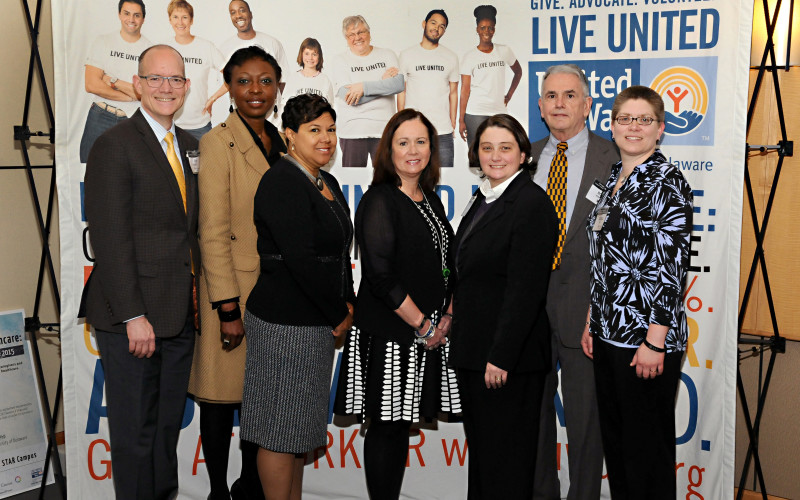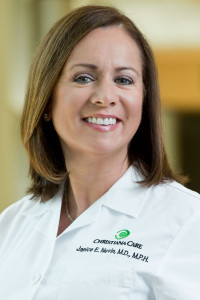Conference addresses health care needs of LGBTQ community

In her work with the Independence at Home program in the Department of Family and Community Medicine, Holly Wright, APN, has likely cared for patients who are gay. But she doesn’t know who they are. She has never asked.
“Most of my patients are older, and I’m sure I have had gay and lesbian patients who just haven’t come out yet,” Wright said. “Some are in assisted-living facilities where they might not feel comfortable coming out.”
Clinicians and people in the community, including funeral directors, outreach workers and transgender people, learned about the challenges in caring for older gay people in a seminar titled “LGBTQ Aging and Healthcare: A Cultural Competency Perspective,” March 23 at the John H. Ammon Medical Education Center.

“The more we learn, the better able we are to be respectful, expert, caring partners in our neighbors’ health. That’s The Christiana Care Way,” said Janice E.Nevin, M.D., MPH, Christiana Care president and CEO, who introduced the conference with Michelle Taylor, CEO of United Way of Delaware.
Having conversations about sexual orientation and gender identity is important because lesbian, gay, bisexual, transgender and questioning (LGBTQ) patients often have different risk factors than straight people, said Rev. Timothy D. Rodden, M.Div., MA, director, Pastoral Services and co-chair, Delaware LGBTQ Health Equity Task Force.
“It is critical to following established practices of care,” Rodden said.
Gay men are 43 times more likely to develop anal cancer. Lesbians are more likely to have risk factors for breast and gynecological cancers, yet are less likely to get screenings. LGBTQ people are at a higher risk for depression and substance use disorders.
Older people in the LGBTQ population came of age at a time when being gay was a criminal act and are less likely to be out than their younger counterparts. In a Lambda Legal survey, 38.5 percent of gay men, lesbians and bisexuals said they believed medical personnel would treat them differently if they knew their sexual orientation.
The day-long conference included a showing of the documentary film “Gen Silent,” in which gay senior citizens must decide whether they should come out or go back into the closet in a hostile nursing-home environment. There were two panel discussions, on clinical resources and resources in the community for LGBTQ people.
Achieving cultural competency means not making assumptions about the gender of a partner or spouse, Rodden said. Health care providers also can make LGBTQ patients feel more at ease by displaying the Human Rights Campaign logo, a yellow equal sign on a blue background, in the office and by adding inclusive language to forms.
“Ask patients: Who are the important people in your life? When you are taking a sexual health history simply ask: Do you have sex with men, women or both?” he said. “Ask like it’s a normal thing to ask because it is a normal thing to ask.”
That resonated with Xiangfen Gu, an outreach coordinator at the Helen F. Graham Cancer Center & Research Institute who works with the Chinese community.
“With Asian people, it’s difficult for them to talk about their sexual orientation,” she said. “Now I have an idea on how to open the conversation.”
The conference was jointly provided by Christiana Care’s Center for Diversity and Inclusion, Cultural Competence and Equity; the Delaware Nurses Association; the Delaware Academy of Medicine; and the Delaware Academy of Family Physicians. Additionally, the United Way of Delaware was a sponsor.